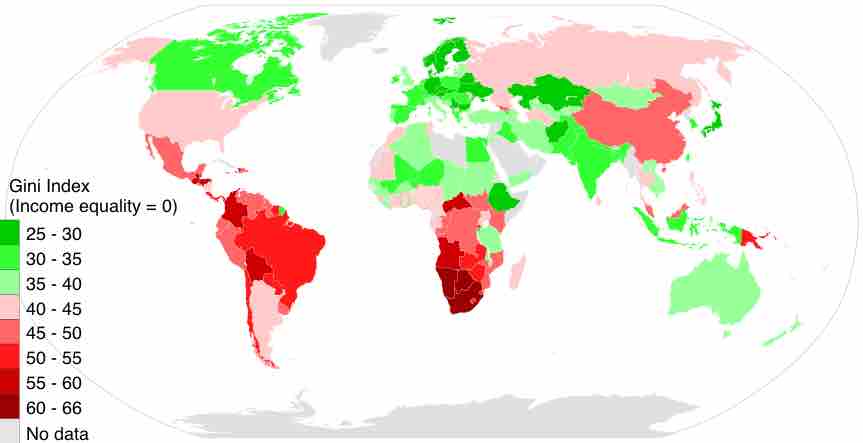Globalization has been impacting global development for millennia, and shows no signs of slowing down. As a result, society must carefully consider the consequences of an ever-accelerating integration of cultures and economies, and ensure the benefits outweigh the costs.
The Consequences of Globalization
While globalization is often touted as an overwhelmingly positive development in the long run, there are many arguments to be made concerning the potential pitfalls and consequences of an increasingly-connected world. These can be best described as political, cultural, economic, and ethical in nature.
Political
While the rise of NGO's and other humanitarian groups is a wonderful benefit of the internationalizing world, there are also consequences. As a result, some nations seem to be growing more and more agitated. North Korea is a prime example of an isolationist state, resisting globalization and strictly regulating what products, individuals, and even ideas are permitted to pass their country's borders. While globalization has brought countries in closer contact, it also serves to accelerate conflicts.
Cultural
Cultural exchange is a wonderful thing in many ways, but doesn't come without its costs. As we integrate cultures across the globe, many cultures feel that their own culture is being lost in what could be described as the growing 'world culture.' As new views and ideas compete for our attention, certain cultural perspectives are left discarded and forgotten for others. It is sometimes argued that this is robbing certain locales of their heritage.
Economic
While you may be able to drink coffee from Ethiopia while texting on a phone manufactured in Korea on an Uber in New York City, there are also some critical downsides to a global economy. First and foremost is the exploitation of cheap labor. While there are valid arguments that outsourcing labor leads to some economic growth in developing nations, there is still no question that globalization also leads to poor working conditions, extremely low wages, and indentured servitude. Yet still, due to regulatory environments lacking proper standards and business practices pursuing the path of least resistance, this exploitation continues.

Income Inequality as of 2014
This map demonstrates levels of income inequality across the globe utilizing a Gini coefficient as of 2014. The very real divide between developed and developing nations underscores a core weakness in globalization, as benefits are not shared equally and wages do not reflect norms across regions.
The other often cited criticism of a globalized economy is the rapid consolidation of many industries. Monopolies and oligopolies on an global level are powerful and difficult to regulate, allowing for unfair practices and the pushing out of local businesses. Offsetting this risk requires careful legislation and the social expectation that firms behave responsibly and with respect for local economies.
Ethical
Aside from these big topics in globalization, there are other ethical concerns worth mentioning. As economies spread farther across the globe, so too does the pollution of manufacturing and transportation. The destruction of natural resource pools through corporate exploitation is relatively common, and the propensity to sell products that are clearly unhealthy has picked up across the globe (i.e. fast food, alcohol, cigarettes, etc.).
While the list could go on, this provides a frame of reference for considering the developmental challenges that come alongside a more global world. Addressing these consequences respectfully and carefully to mitigate the negative effects is a critical concern for governments, businesses, and each and every one of us.